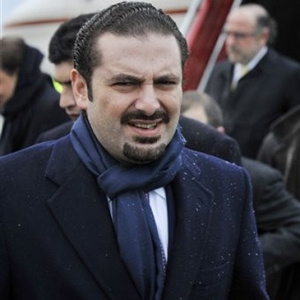A Lebanese in Tehran
Could Hariri’s visit to Tehran bring back the good old days? By Mohammad Irani, Lebanese affairs expert

The assassination of Rafiq Hariri was a blow to Tehran-Beirut relations, particularly displaying itself in the new alliances that have transformed Lebanon’s political composition since 2005. While Iran and Syria back Hezbollah, Hariri spearheads the 14th of March alliance which encompasses major Christian and Sunni groups. Political camps and regional actors agreed to defuse post-2006 tensions (emerged after the war between Hezbollah and Israel) and support a national reconciliation process. The 2009 parliamentary elections further reinforced this process. Al in all, Lebanese groups are content with the status quo as it prevents further damage towards national interests.
After being elected by the parliament as the new prime minister, Saad Hariri initiated his diplomatic efforts visiting Saudi Arabia, Egypt and France. However, the most resounding repercussion, internally and regionally, belonged to Hariri’s historical visit to Syria in December 2009. Iran, as a major player in Lebanese politics, had been curious to find out if Hariri has plans to buy tickets for Tehran.
Inside Lebanon, by the wisdom of hindsight almost all political camps believe that development of ties with all influential regional players is an imperative that guarantees political stability. Saad Hariri’s visit to Tehran, which definitely needs the approval of key regional actors, could be the next step to stabilize Lebanon. Syria’s role in this trip can’t be ignored since it was after Bashar Assad’s trip to Saudi Arabia that speculations on Hariri’s visit to Iran started to circulate.
Development of bilateral ties will be Hariri’s key target in his visit to Tehran. Maintaining close relations with Iran has been on the agenda of all administrations in Lebanon since the end of the civil war in 1990. The visit becomes meaningful as Riyadh, Paris and Damascus have hosted the young prime minister. It would also reinforce 14th of March’s position in the domestic scene of Lebanese politics. Pro-Iran groups in Lebanon seem to have no problem with the visit as they believe close ties between Tehran and Beirut is an advantage. The visit could also reduce Tehran’s regional challenges. Traditionally, a visit by Lebanese prime ministers to Iran needs Syria and Saudi Arabia’s green light. If we look at the trip from this angle, it may help Iran mend its relations with Arab states of the region.
After being elected by the parliament as the new prime minister, Saad Hariri initiated his diplomatic efforts visiting Saudi Arabia, Egypt and France. However, the most resounding repercussion, internally and regionally, belonged to Hariri’s historical visit to Syria in December 2009. Iran, as a major player in Lebanese politics, had been curious to find out if Hariri has plans to buy tickets for Tehran.
Inside Lebanon, by the wisdom of hindsight almost all political camps believe that development of ties with all influential regional players is an imperative that guarantees political stability. Saad Hariri’s visit to Tehran, which definitely needs the approval of key regional actors, could be the next step to stabilize Lebanon. Syria’s role in this trip can’t be ignored since it was after Bashar Assad’s trip to Saudi Arabia that speculations on Hariri’s visit to Iran started to circulate.
Development of bilateral ties will be Hariri’s key target in his visit to Tehran. Maintaining close relations with Iran has been on the agenda of all administrations in Lebanon since the end of the civil war in 1990. The visit becomes meaningful as Riyadh, Paris and Damascus have hosted the young prime minister. It would also reinforce 14th of March’s position in the domestic scene of Lebanese politics. Pro-Iran groups in Lebanon seem to have no problem with the visit as they believe close ties between Tehran and Beirut is an advantage. The visit could also reduce Tehran’s regional challenges. Traditionally, a visit by Lebanese prime ministers to Iran needs Syria and Saudi Arabia’s green light. If we look at the trip from this angle, it may help Iran mend its relations with Arab states of the region.

